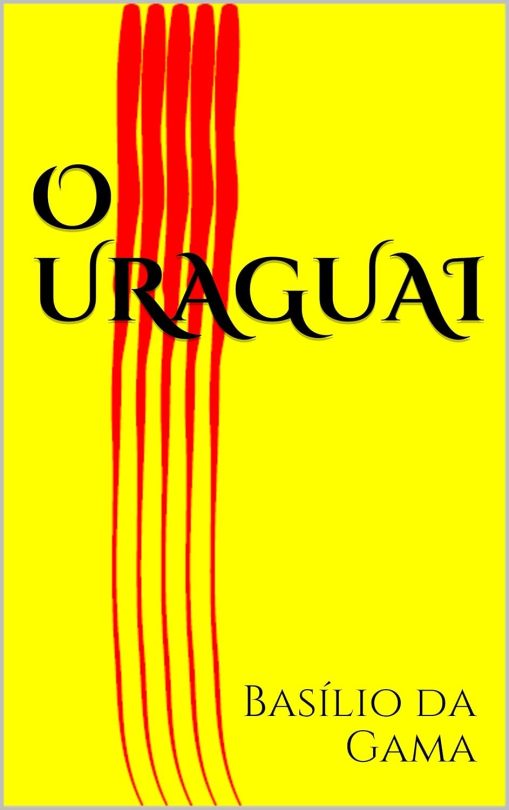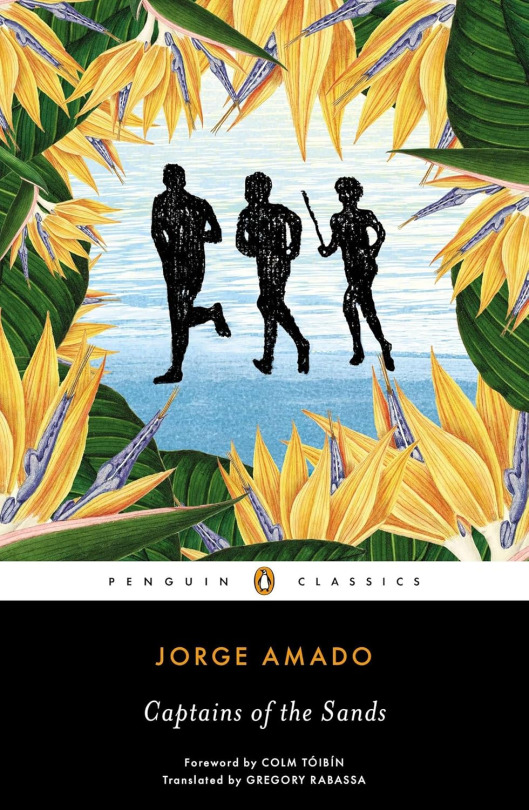Finding Your Destiny
Finding Your Destiny

"The boy could see in his father’s gaze a desire to be able, himself, to travel the world—a desire that was still alive, despite his father’s having had to bury it, over dozens of years, under the burden of struggling for water to drink, food to eat, and the same place to sleep every night of his life."
About the Book
Title: The Alchemist Author: Paulo Coelho Published: 1988 Original Title: O Alquimista
Summary
The Alchemist follows the journey of Santiago, a shepherd from Spain who dreams of finding a hidden treasure near the Egyptian pyramids. His quest takes him to many places, where he encounters wise mentors and people who help him along the way.
Santiago learns about the importance of following his heart and pursuing his personal legend. The story is very spiritual and talks a lot about philosophy.
Key Themes
Destiny
Dreams
Self-discovery
Spiritual enlightenment
More Posts from Carnivalofstories and Others
The Guaraní War

"Still reek outstretching o’er the desert strands Lakes of man’s life-tide tepid and impure Where float the fragments of the unsheeted dead Baiting the vulture. Volley still the vales With hoarse artillery bellowing horrid sound. Muse! do we honour to the Brave who tamed Uruguay’s rugged brood, and in its blood Washed out the affronting of his King’s decrees. Aye me! Thou lust of Empire, such thy cost!"
About the Book
Title: The Uruguay Author: José Basílio da Gama Published: 1769 Original Title: O Uraguai
Summary
This epic poem tells the story of the end of the Guaraní War (1754-1756), focusing on the enslavement of the Guaraní people under the control of the Jesuits (Society of Jesus). Set in Rio Grande do Sul, it offers a critical perspective on the conflict and the power dynamics at play.
The poem is divided into five cantos, following a style inspired by The Lusiads by Luís Vaz de Camões.
P.S. In English, the book is titled The Uruguay because the story is set along the Uruguay River in Rio Grande do Sul. Also, Uraguai with an "a" might have been a poetic choice by the author.
Key Themes
Colonialism
Power and War
Religion and Slavery
Three Girls, Three Fates

"Perhaps love for death is like love for a man, and she is satisfied, is consoled, and is cured only after being possessed and exhausted."
About the Book
Title: The Three Marias Author: Rachel de Queiroz Published: 1963 Original Title: As Três Marias
Summary
This novel follows the lives of three friends—Maria Augusta, Maria da Glória, and Maria José—who meet at a Catholic boarding school. Life takes them in different directions, shaped by societal expectations, love, and family. The narrator, Maria Augusta, struggles to fit into the role that society imposes on her.
Key Themes
Coming of age
Religion
Love
Gender Roles
Expectations
Friendship
What is sanity?

“Were they all really insane? Did I really cure them? Or is not mental imbalance so natural and inherent that it was bound to assert itself with or without my help?”
About the Book
Title: The Alienist Author: Machado de Assis Published: 1882 Original Title: O Alienista
Summary
Dr. Simão Bacamarte is a brilliant but obsessive physician that made his life mission the study of mental illnesses in the small town of Itaguaí. Convinced he know how to determine who is sane and who is insane, the doctor begins commiting patients based on a rigid and weird criteria. Too emotional? Locked up. Too rational? also locked up.
This book is a mix of satire, irony, and existential dread. Who gets to decide what is insane? What is sanity? Machado de Assis challenges the reader to question everything about reason, while also critiquing the medicalization of traits that, in his time, were considered mental illness (like hysteria).
Key Themes
Science vs Humanity
Satire
Power
Madness vs Reason
This book was burned during the military dictatorship

"In the mysterious night of the macumbas the drums resound like trumpets of war."
About the Book
Title: Captains of the Sand Author: Jorge Amado Published: 1937 Original Title: Capitães da Areia
Summary
Captains of the Sand is set in the city of Salvador and follows the story of a group of orphaned boys living on the streets. They survive through petty theft and share a deep sense of brotherhood. Their leader is Pedro Bala, a boy who is protective of his gang.
The book was banned during the Brazilian military dictatorship for its portrayal of poverty and its perceived communist ideas. It was even burned in a public square in November of 1937, alongside other books (mostly from Jorge Amado).
P.S. There are many things you will not agree with in the book, and it contains an explicit rape scene.
Key Themes
Poverty
Injustice
Social Exclusion
Survival
Is he a dead writer or a writer who is dead?

"To the worm who first gnawed on the cold flesh of my corpse, I dedicate with fond remembrance these Posthumous Memoirs."
About the Book
Title: The Posthumous Memoirs of Brás Cubas Author: Machado de Assis Published: 1881 Original Title: Memórias Póstumas de Brás Cubas
Summary
The Posthumous Memoirs of Brás Cubas is a satirical novel, in which the narrator, Brás Cubas, tells his life story from beyond the grave. From this unusual point of view, Brás Cubas criticizes the 19th-century Brazilian society.
Brás Cubas narrates with an ironic and humorous tone, mocking the world and himself. He even begins his memoirs not with his birth, but with his own death. This weird man spends his life in failed romances, half-hearted political ambitions, and existential boredom, only to realize (too late) that he achieved absolutely nothing.
P.S. There is a chapter with only exclamation points.
Key Themes
mortality and death
irony and satire
social commentary
existentialism
City of God

"It was kite-flying time in City of God."
About the Book
Title: City of God Author: Paulo Lins Published: 1997 Original Title: Cidade de Deus
Summary
If you’ve ever heard of the Brazilian movie City of God, you already have an idea of how the story unfolds. The novel follows the lives of the residents of Rio de Janeiro’s most notorious favela, offering a glimpse into the harsh reality of poverty.
Key Themes
Crime
Violence
Drug Trafficking
Social Inequality
The Don Quixote of Brazilian Nationalism

"And she thought how diverse and varied life is, how it is richer in sadness than in happiness and how in the variety of life there are more varieties of sadness than there are of happiness and how sadness lies at the core of life."
About the Book
Title: The Sad End of Policarpo Quaresma Author: Lima Barreto Published: 1915 Original Title: Triste Fim de Policarpo Quaresma
Summary
Policarpo Quaresma is a civil servant and a devoted patriot. An extremely idealistic man, he seeks to promote Brazilian culture in every way possible—advocating for Tupi as the national language and even attempting agricultural reforms (you know this is going to go wrong).
Quaresma is almost like Don Quixote—delusional and idealistic. His story is a tragedy, and Lima Barreto masterfully critiques the hypocrisy of Brazilian society, exposing its resistance to change at the beginning of the Republic.
P.S.: This book is frustrating, goddamnit.
Key Themes
Tragedy
Political Criticism
Cultural Identity
Nationalism and Idealism
The saddest book

"The dog wanted to sleep. She would wake up happy, in a world full of cavies, and would lick the hands of Fabiano—a Fabiano grown to enormous proportions. The boys would roll on the ground with her in an enormous yard, would wallow with her in an enormous goat pen. The world would be full of cavies, fat and huge."
About the Book
Title: Barren Lives Author: Graciliano Ramos Published: 1938 Original Title: Vidas Secas
Summary
Everything about this book is pure sadness. I’ll just tell you now: it doesn’t have a happy ending. The story follows a family living in Brazil’s Northeast, struggling to survive due to the relentless drought. There are many characters (some of whom aren’t even named), but the most iconic is the dog Baleia (Whale in Portuguese), who is nothing but skin and bones.
P.S. The dog chapter is absolutely heartbreaking.
Key Themes
Poverty
Drought
Survival
Northeast Region
Cicle
Surreal Adventures

"john c.: Three hundred miles, Chico? chico: Three hundred miles. I had ridden that far on my horse. All because he had been blessed. john c.: But, Chico, how did you cross the San Francisco River, that never runs dry? chico: There you go again, John, with your mania for asking questions. john c.: Of course I want to know: How did you get across? chico: I don’t know. All I know is, that’s the way it was."
About the Book
Title: The Rogue’s Trial Author: Ariano Suassuna Published: 1955 Original Title: Auto da Compadecida
Summary
The Rogue's Trial is a comedic play that blends religious satire and Brazilian folklore. It follows João Grilo (Cricket) and Chicó, two men living in the Brazilian Northeast. The book is surreal and explores a range of themes, including morality, class struggles, and survival.
P.S. Satan is hilarious. Also, go watch the movie with the amazing Fernanda Montenegro.
Key Themes
Comedy
Faith
Redemption
Regional Identity
Did she cheat or not?

"Capitu, in spite of those eyes the devil gave her … Have you noticed her eyes? They’re a bit like a gypsy’s, oblique and sly."
About the Book
Title: Dom Casmurro Author: Machado de Assis Published: 1900 Original Title: Dom Casmurro
Summary
Dom Casmurro follows the story of Bentinho, a man who reflects on his past, particularly his relationship with Capitu. He raises questions about whether his suspicions regarding Capitu's fidelity are true or merely the result of paranoia. Additionally, they have a son who Bentinho believes does not resemble him at all.
Bentinho is an unreliable narrator, as he is the sole person telling the story, and the author makes us question whether he is telling the truth or not.
Key Themes
Jeaslisy
Memory vs. Perception
Love and Trust
Unreliable Narrator

Celebrating Brazilian stories through book recommendations
22 posts